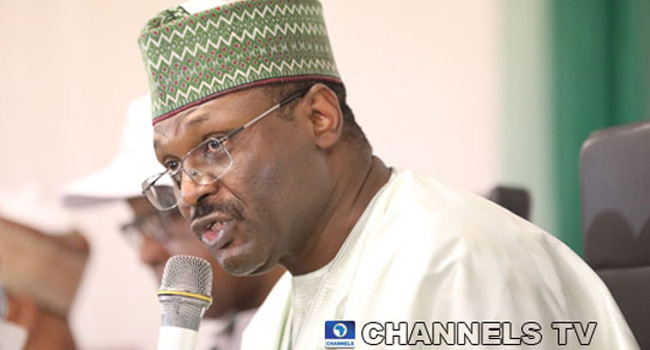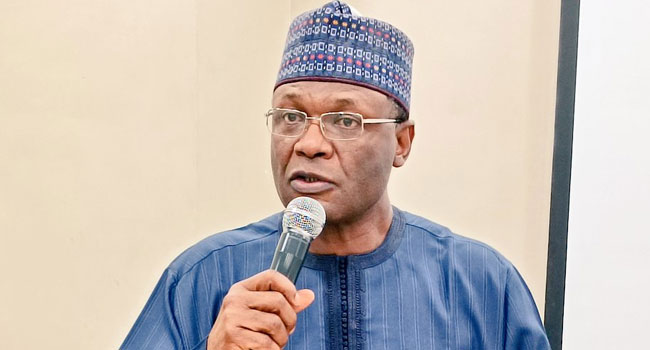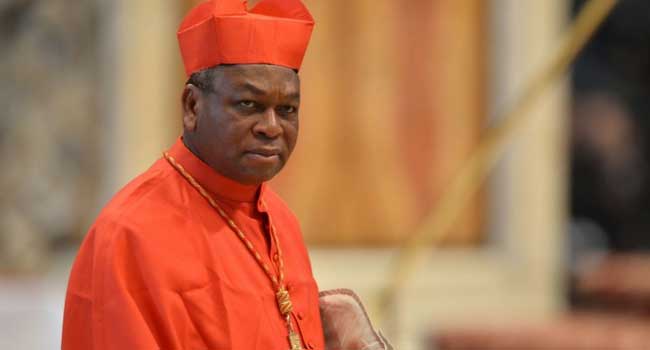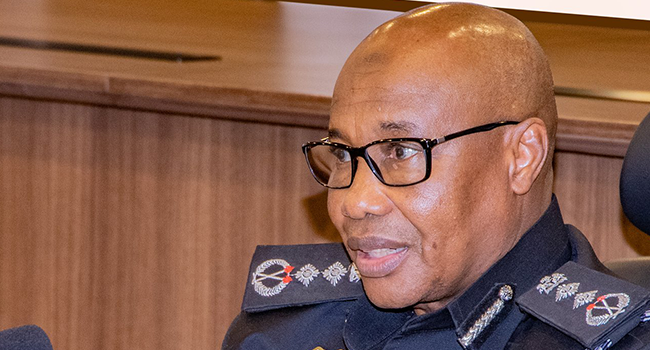The Independent National Electoral Commission (INEC) has said it will meet with stakeholders to address the conduct of politicians during the just concluded general elections.
Chairman of the commission, Professor Mahmood Yakubu, stated this on Tuesday at a meeting with the Resident Electoral Commissioners in Abuja.
He said “We need a conversation around the personal conduct of especially the political actors.
“The “do-or-die” attitude of some politicians and the inability to penalise electoral offenders incentivise bad behaviour”.
Read Full Statement Below:
REMARKS BY HONOURABLE CHAIRMAN, INDEPENDENT NATIONAL ELECTORAL COMMISSION (INEC), PROF. MAHMOOD YAKUBU, AT A MEETING WITH THE RESIDENT ELECTORAL COMMISSIONERS, CONFERENCE ROOM, INEC HEADQUARTERS, ABUJA, TUESDAY 28TH MAY 2019
Honourable National Commissioners
Resident Electoral Commissioners
Senior officials of the Commission
Ladies and Gentlemen
1. It is my pleasure to welcome you to yet another meeting. At the last meeting, we reviewed our preparations for the 2019 general elections. Today, we are meeting for the first time since the conclusion of the elections. General elections in Nigeria are always the biggest activities the nation undertakes every four years, involving the participation of millions of our citizens as voters, election duty staff, security officials, the civil society, faith-based organisations, traditional leaders, socio-cultural organisations, the National Peace Committee and the media. General elections also attract intense international attention from observers, the diplomatic corps and the media.
2. Many observers have already submitted their interim and final reports on the elections. Many civil society organisations appraised various aspects of the exercise.
READ ALSO: INEC Withdraws 25 Certificate Of Return From Election Winners
The judiciary in Nigeria is also adjudicating many petitions challenging the conduct of primary elections by political parties as well as the outcome of the general elections. On behalf of the Commission, I wish to express our appreciation to all the individuals and organisations that observed the elections and submitted reports on the outcome to the Commission. We shall dutifully study these reports and take into consideration the actionable recommendations in planning for future elections.
3. You may recall that the Commission had earlier assured the nation that we shall review all aspects of our processes and procedures for the 2019 general elections in full consultation with stakeholders. We are convinced that there should be a major national conversation on the management of our electoral process.
This process must be qualitatively different from what was done in the past and benefit from all previous efforts at reform. Today’s meeting with the Resident Electoral Commissioners is the first in the series of engagements within the Commission and with all stakeholders. We are convinced that until we get our electoral process on the right, consistent and progressively positive trajectory, our efforts at nation-building and promoting peace and progress shall remain epileptic. No doubt we have made progress since 1999 but a lot of work still lies ahead.
4. Over the next two months, the Commission plans to engage with all stakeholders, beginning with a root and branch review involving our own officials at Local Government and State levels, ranging from Electoral Officers (EOs), Administrative Secretaries (ASs), Heads of Department (HoDs) and representatives of ad hoc officials engaged for elections from Presiding Officers at Polling Unit level to collation and returning officers.
We shall then follow it up with consultations at the national level with political parties, the security agencies, civil society organisations, the media, development partners, traditional and religious organisations, the national and local peace committees and professional groups accredited to observe elections. Details of the series of activities and timelines will be finalised at this meeting and made public immediately.
5. We intend to structure the conversation around the following critical issues:
i. Preparations for the 2019 general elections, looking in particular at some of the critical materials, staging posts such as the RACs and super RACs, storage facilities, the collation/declaration centres etc.
ii. Voter registration and collection of Permanent Voters’ Cards (PVCs).
iii. Communication issues: voter education and publicity.
iv. Political parties: number, mode of registration, internal democracy, accreditation of party agents etc.
v. Recruitment, training and deployment of election personnel.
vi. Logistics: movement and security of personnel and materials.
vii. ICT related issues ranging from the configuration and deployment of technology, including the recruitment, training and deployment of technical support. We also need an informed conversion on the use of technology to deepen the electoral process.
viii. Procurement and deployment of sensitive and non-sensitive materials.
ix. Election day processes, including polling unit administration, accreditation of voters, voting procedure and result management, particularly the collation and transmission of results.
x. Reverse logistics for personnel and materials, including an audit of materials used as well as the storage and retrieval of election statistics.
xi. Election security focusing on the relationship between INEC and the security agencies, the effectiveness and impact of election risk assessment methods, deployment and conduct of security personnel.
xii. The electoral legal framework and the necessity for a comprehensive, dispassionate and early conclusion as well as the passage of any constitutional and electoral act amendments.
xiii. The extensive responsibilities of INEC, which has become not just an election management body but a manager of the democratic process in general.
This often leaves the Commission little time to plan for elections and simultaneously and effectively address other extensive and more complex responsibilities such as constituency delimitation and prosecution of electoral offenders. The Commission now conducts elections all-year round (court-ordered rerun elections, bye-elections and seven off-season Governorship elections).
xiv. Inclusivity issues, involving the participation of women, youths and persons living with disabilities in elective offices in particular and the electoral process in general.
xv. The plethora of election observers, their accreditation, responsibilities and behaviour during and after elections.
xvi. Funding issues: Elections are not only becoming increasingly expensive with an increased number of voters, personnel and materials requiring huge logistics and deployment of new technology. We need a deep conversation around the cost of elections.
xvii. Above all, we need a conversation around the personal conduct of especially the political actors. The “do-or-die” attitude of some politicians and the inability to penalise electoral offenders incentivise bad behaviour.
6. The Commission hopes that the recommendations arising from the national conversation will feed into an enduring reform of our electoral process. For it to be robust, we also need to take into consideration the reports of previous committees on electoral reform.
Over the last 40 years, virtually all our elections have been accompanied by the report of one committee or another on electoral reform, among them the Babalakin Commission of Inquiry into the affairs of the Federal Electoral Commission (FEDECO in 1986), the Uwais report on electoral reform (2008), the Lemu Committee on post-election violence (2011), the Ken Nnamani Committee on constitutional and electoral reform (2017), the various administrative reports by INEC, investigation reports by the security agencies (the Nigeria Police and the Nigerian Army), the independent studies by the National Human Right Commission (2015 and 2017), the judgements of the various election petition tribunals, the reports of domestic and international observers, record of public hearing for the amendment of the electoral legal framework by the National Assembly and even confessional statements by some political actors.
There is value in revisiting all these reports. The Commission will work with stakeholders in undertaking such a comprehensive review in earnest.
7. Once again, I welcome all our RECs to this meeting. I thank you for your attention and the meeting now goes into the working session.




